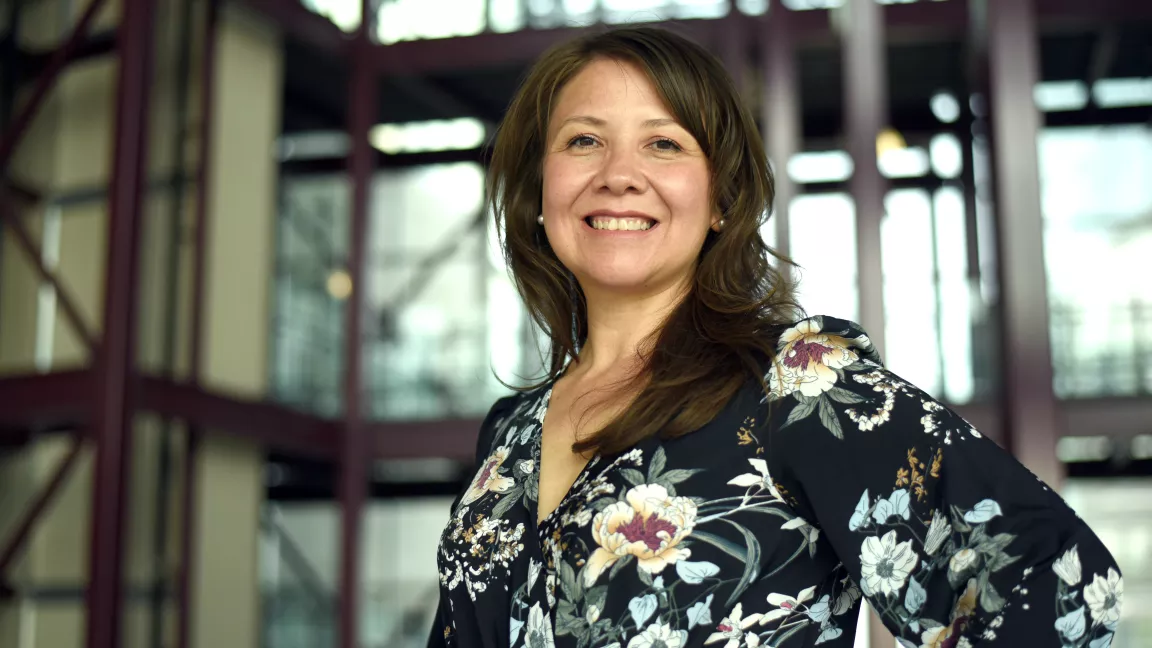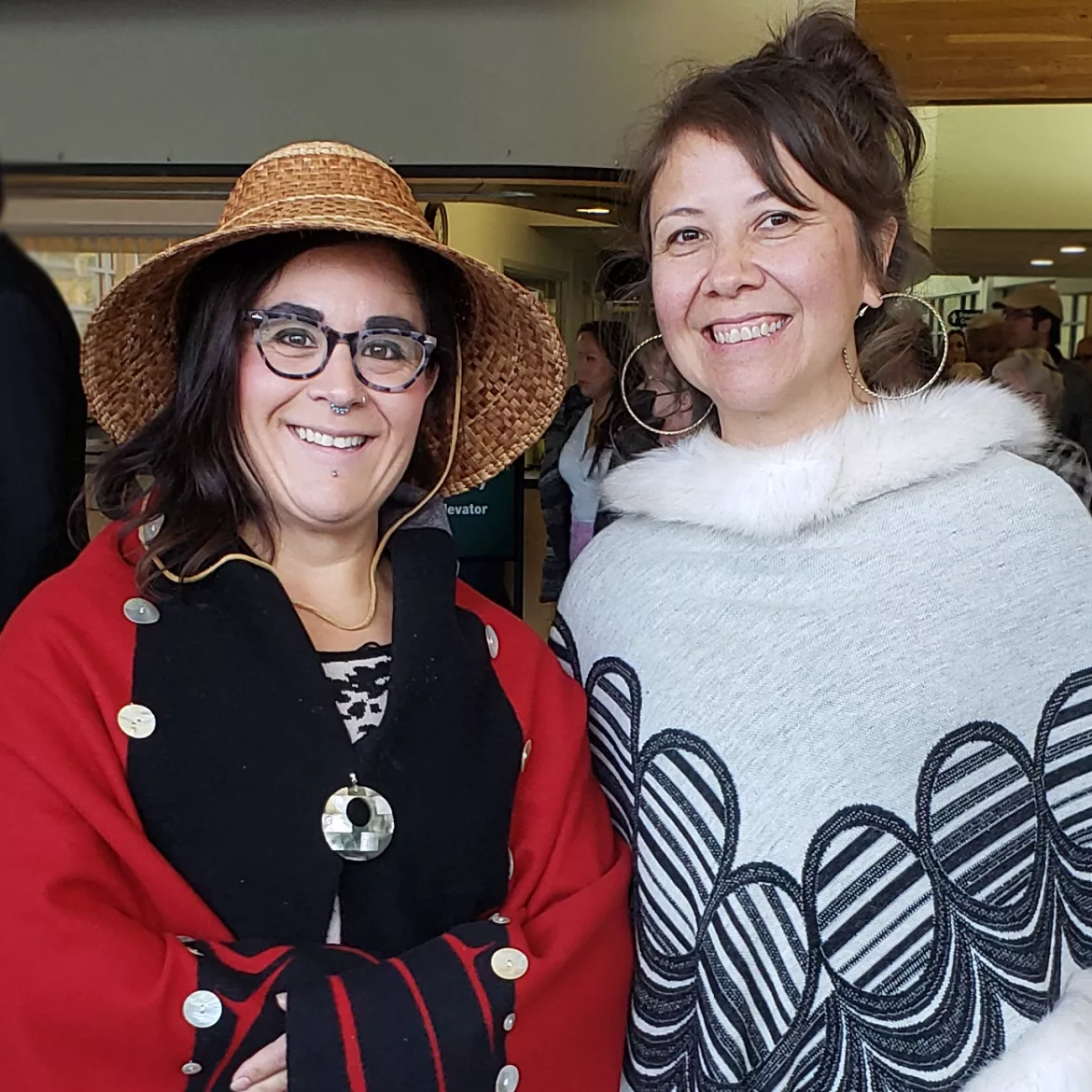Reclaiming Indigeneity creates future plan
The First Nations Planning major in the School of Planning and Sustainability allowed this year's recipient of the Pounamu Taonga Award to explore, understand and further establish her sense of identity. Ryan O'Toole says the experiences gained during her undergraduate degree have been life changing.

Ryan O’Toole came to UNBC to connect with her Indigeneity. Growing up dislocated from territory, family and culture, O’Toole came to northern B.C. to be closer to her family and the traditional lands of the Gitxaała Nation. She says the experience has been transformative.
O’Toole was honoured as the 2023 Pounamu Taonga (Greenstone Treasure) Award recipient at last month’s First Nations Centre Graduation Ceremony, one day before receiving her Bachelor of Planning degree at UNBC’s Convocation Ceremony. She chose to major in First Nations Planning and took part in several experiential learning opportunities, as she worked to connect with her Indigenous identity.
“During my time at UNBC, I have been fortunate to learn from some very wonderful Indigenous professors and colleagues through the First Nations Centre,” she says. “I’ve participated in field schools that have taken me to Unis’tot’en homestead on Wet’suwet’en Territory and to Guatemala to learn about the impact of Canadian mining on the Mayan Peoples. I participated in a cross-cultural Indigenous Knowledge Exchange and spent nine months in Aotearoa and Auckland, New Zealand as part of a research internship.”
Following these experiences, O’Toole’s studies led her to work with her Nation, which is found off the coast of what is now referred to as Prince Rupert, on their Comprehensive Community Plan.
“None of these life-changing experiences would have been possible without UNBC and I’m so grateful for that,” says O’Toole, who was surprised to learn she had been nominated for the Pounamu Taonga Award.
“Given the reasons I came to UNBC, as an Indigenous student struggling to know how to ‘be’ Indigenous,” says the recipient. “It was a very touching gesture that holds so much significance for me.”

Adding to the significance for O’Toole was the fact she received the award from Assistant Professor Dr. Jessie King, who is also from the Gitxaala Nation and was serving as Acting Chair of the Department of First Nations Studies at the FNC graduation event.
Photo shows Dr. Jessie King at left with Ryan O'Toole at last fall's Installation ceremony for the Chancellor and President.
“To have the stars align where Dr. King has come up through the institution and is Acting Chair, presenting the award to an undergraduate from the same Nation is huge,” says O’Toole.
“The rate of Indigenous students graduating from university is still hugely disproportionate to non-Indigenous students,” she says. “This is not a coincidence; this is a reflection of settler colonialism in Canada and within our academic institutions. The academy was never designed for our success, let alone our existence.”
So, receiving the award from a member of her Nation was extremely gratifying for O’Toole. “It shows how far the academy has come, it also shows there is still a long way to go and, most importantly, it shows how far we (Gitxaala Nation) are coming and that is truly the most wonderful celebration of all!”
In the final year of her degree, O’Toole pursued an Honours thesis focusing on Indigenous homelessness. She intends to continue her research at the graduate level at the University of Alberta, as she moves to Edmonton to be closer to her aging parents.
“My goal is to demonstrate how Indigenous homelessness is a direct impact of colonization and highlight the role urban planning has played in settler colonialism,” explains O’Toole. “Ultimately, I want to contribute to a discourse that articulates our inherent Indigenous rights in a local/municipal context.”